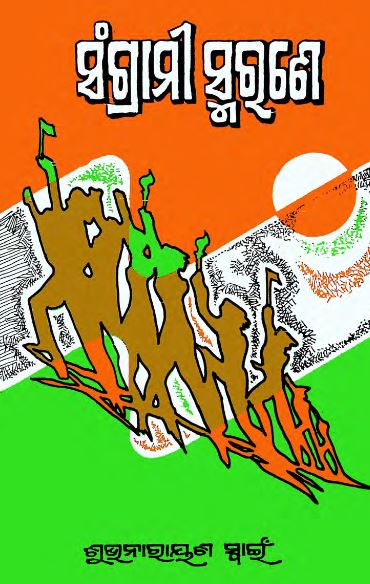Sangrami Smarane, an evocative Odia essay book authored by Subhanarayan Swain and published in 1999, offers readers an enlightening perspective on the freedom struggle in Odisha. This collection delves into the historical context, the key figures involved, and the socio-political landscapes that shaped the region’s resistance against colonial rule. Swain’s prowess in weaving narrative with historicity creates a compelling tapestry that resonates with both history enthusiasts and casual readers alike.
Odisha’s history is a profound narrative of resilience and resistance. The state, while rich in culture and heritage, has also been a battleground for various movements against oppression. In “Sangrami Smarane,” Swain meticulously chronicles the pre-independence era, shedding light on the socio-economic conditions that fueled discontent among the Odia populace. The British colonial policies had far-reaching impacts, including economic exploitation and cultural neglect. Swain captures this discontent, making the historical facts accessible and relatable to contemporary readers.
One of the standout features of “Sangrami Smarane” is its portrayal of the significant figures who emerged as leaders during the freedom movement in Odisha. Swain stalwartly highlights the contributions of prominent personalities like Utkalmani Gopabandhu Das, who galvanized the masses in their quest for freedom. Through eloquent narratives and personal anecdotes, the author brings these figures to life, instilling a sense of pride and inspiration in readers.
The book also outlines various movements that took shape during this critical juncture. From the Non-Cooperation Movement to the Quit India Movement, Swain illustrates how the Odia populace actively participated in these national movements, often at great personal risk. He emphasizes the collective spirit of the people, showcasing how community alliances were forged in the face of adversity.
Beyond the political and historical analysis, “Sangrami Smarane” also delves into the cultural dimensions of the freedom struggle. Swain emphasizes how the arts, literature, and folklore played an instrumental role in shaping the national consciousness amongst the Odia people. The author draws connections between cultural expressions and the desire for freedom, showing how poets, playwrights, and artists contributed to the ideological framework of resistance.
Subhanarayan Swain’s work transcends mere historical recounting; it serves as a poignant reminder of the values of courage, unity, and perseverance. In an era where the youth grapple with issues of identity and patriotism, “Sangrami Smarane” holds significant relevance. It encourages a reflection on the sacrifices made by previous generations and invokes a sense of responsibility towards upholding and cherishing the hard-won freedoms.
In conclusion, “Sangrami Smarane” is not just a chronicle of Odisha’s freedom struggle; it is a tribute to the indomitable spirit of its people. Subhanarayan Swain’s eloquence and depth of insight make this book a must-read for anyone looking to understand Odia history’s rich tapestry. As readers delve into its pages, they are reminded that the past is not just a collection of dates and events, but a living legacy that shapes our present and future. This book stands as a powerful beacon of knowledge, pride, and patriotism, ensuring that the sacrifices of the freedom fighters are neither forgotten nor trivialized.
Books Info
| Books name | Sangrami Smarane/ସଂଗ୍ରାମୀ ସ୍ମରଣେ |
| Author | Subhanarayan Swain |
| No Of pages | 169 |
| Publisher | Cuttack Lekhaka Sahajoga Samiti Pvt.Ltd |
| Publication | 1999 |
| Printed At | Panchasakha Prakashana |
| Distributor | NA |

